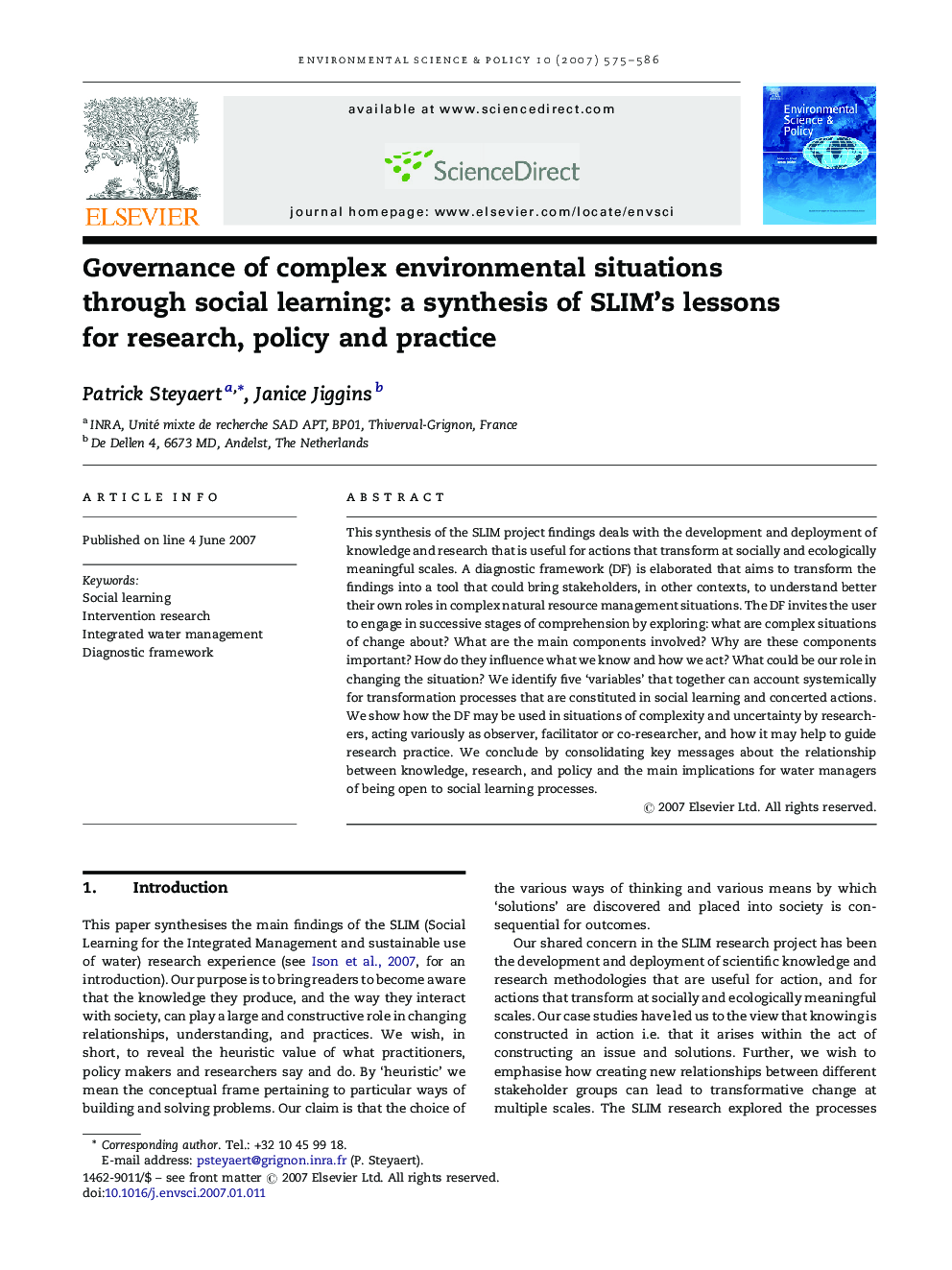| Article ID | Journal | Published Year | Pages | File Type |
|---|---|---|---|---|
| 1054294 | Environmental Science & Policy | 2007 | 12 Pages |
This synthesis of the SLIM project findings deals with the development and deployment of knowledge and research that is useful for actions that transform at socially and ecologically meaningful scales. A diagnostic framework (DF) is elaborated that aims to transform the findings into a tool that could bring stakeholders, in other contexts, to understand better their own roles in complex natural resource management situations. The DF invites the user to engage in successive stages of comprehension by exploring: what are complex situations of change about? What are the main components involved? Why are these components important? How do they influence what we know and how we act? What could be our role in changing the situation? We identify five ‘variables’ that together can account systemically for transformation processes that are constituted in social learning and concerted actions. We show how the DF may be used in situations of complexity and uncertainty by researchers, acting variously as observer, facilitator or co-researcher, and how it may help to guide research practice. We conclude by consolidating key messages about the relationship between knowledge, research, and policy and the main implications for water managers of being open to social learning processes.
